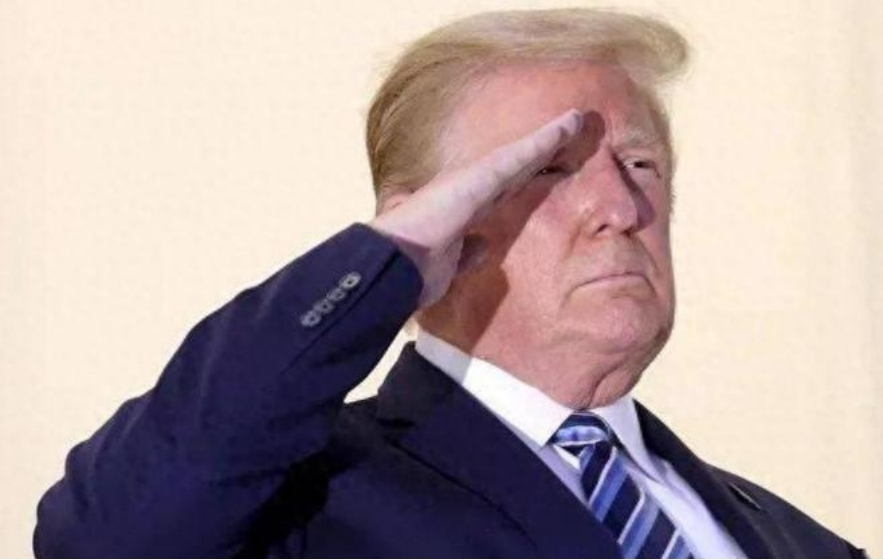
In July local time, a series of tariff policy moves by U.S. President Trump attracted global attention. He announced that starting from August 1st, a number of new tariff policies would be formally implemented, which will undoubtedly have a profound impact on the global trade landscape.
Among the many tariff adjustments, the tariff changes for imported semi - finished copper products and copper - intensive derivative products are particularly eye - catching. The United States will generally impose a 50% tariff on such products. As an important industrial raw material, copper is widely used in construction, electronics, electric power and many other fields. This significant increase in tariffs will undoubtedly bring heavy cost pressure to American enterprises that rely on imported copper products for production. Take the American construction industry as an example, a large number of copper products are used in wire and cable, pipeline systems and so on. After the tariff increase, the cost of purchasing relevant copper products for construction enterprises will rise sharply, which may lead to overspending of construction project budgets, and even some small - sized construction enterprises may face operational difficulties because they cannot bear the cost increase. At the same time, for countries and regions that export copper products to the United States, such as Chile, Peru and other major copper - producing countries, the competitiveness of their copper products in the U.S. market will be greatly reduced, and export volumes may decline significantly, which will further affect their own economic growth and employment.
India has not been spared either and has become one of the targets of Trump's new tariff policies. Starting from August 1st, the United States will impose a 25% tariff on goods from India. Moreover, the Trump administration has also let it be known that if India continues to purchase energy from Russia, additional punitive tariffs will be imposed. As an important emerging economy in the world, India has extensive cooperation with the United States in the field of trade. This tariff increase will put Indian export enterprises to the United States in a difficult situation. India's information technology services, textiles, agricultural products and other industries have a large export scale to the United States. After the tariff increase, the price advantage of these products in the U.S. market will be weakened, and enterprise orders may decrease, which will further affect the development and employment of related industries in India. In addition, India's purchase of energy from Russia is based on its own energy needs and economic interests. The United States' attempt to interfere in India's energy purchase decisions through tariff means will not only aggravate the trade tensions between the United States and India, but also may trigger India's countermeasures in other fields.
South Korea has also been impacted by the new tariff policies, with the United States imposing a 15% tariff on South Korea. South Korea's electronics, automobile and other industries occupy an important position in the world, and exports to the United States have always been an important driving force for South Korea's economic growth. Take South Korea's automobile industry as an example, the United States is one of its important overseas markets. The tariff increase will make the price of South Korean automobiles rise in the U.S. market, increasing the purchase cost for consumers, thus leading to a decline in market demand. This will not only affect the sales volume and profits of South Korean automobile enterprises, but also may prompt the South Korean government to take corresponding trade protection measures, further aggravating trade frictions between the United States and South Korea.
The situation in Brazil is also not optimistic. The United States has imposed an additional 40% tariff on Brazil, making its total tariff as high as 50%. Brazil is an important exporter of agricultural products and mineral products in the world, with products such as soybeans and iron ore being exported to the United States in large quantities. High tariffs will greatly weaken the price competitiveness of Brazilian products in the U.S. market, and the income of farmers and mining enterprises will be seriously affected. At the same time, Brazil may seek other international markets to make up for the loss in the U.S. market, which will promote the adjustment of the global trade pattern of agricultural products and mineral products.
The original intention of the Trump administration to implement these new tariff policies is, on the one hand, to reduce the U.S. trade deficit. By increasing the cost of imported goods, it will prompt American consumers to buy more domestic products, thereby promoting the development of domestic industries in the United States. On the other hand, it is also an attempt to show a tough stance on the international political and economic stage and exert influence on the trade and foreign policies of other countries. However, historical experience and economic principles show that trade protectionism is often difficult to achieve the expected results, but will bring many negative effects. High tariffs may lead to higher price levels for domestic consumers in the United States, reducing their actual purchasing power. At the same time, the increase in the cost of imported raw materials for American enterprises may affect their production and investment decisions, and then have an inhibitory effect on the overall growth of the U.S. economy. For global trade, Trump's new tariff policies are undoubtedly a huge shock, which may trigger more countries to adopt trade protection measures, lead to the deterioration of the global trade environment, and hinder the recovery and development of the global economy. In today's world where the global economy is increasingly closely connected, win - win cooperation is the mainstream trend. This series of tariff measures by the United States has undoubtedly cast a shadow over the global trade landscape.

報告顯示,中國電力投資加速增長,預計2024年電網基建投資將超過5300億元。
近日,市場迎來了一則引人注目的消息:工業巨頭3M公司(MMM.N)在本周五公布了其季度業績報告,隨後股價飆升至近兩年來的
最近,外媒給OpenAI算了筆賬,今年可能要血虧50億美元。
近日,巴黎奧運會和世界鐵人三項協會聯合發布了一項重大決定,宣布因塞納河水質污染問題,原定於近期進行的奧運會鐵人三項首次下
當地時間7月18日,法國巴黎發生了一起令人震驚的持刀襲警事件。
近期,一則重大消息在國際舞臺上引起軒然大波,馬來西亞宣布加入金磚國家。
調查發現,互聯網和智能手機的使用幹擾了韓國近五分之一學生的生活。